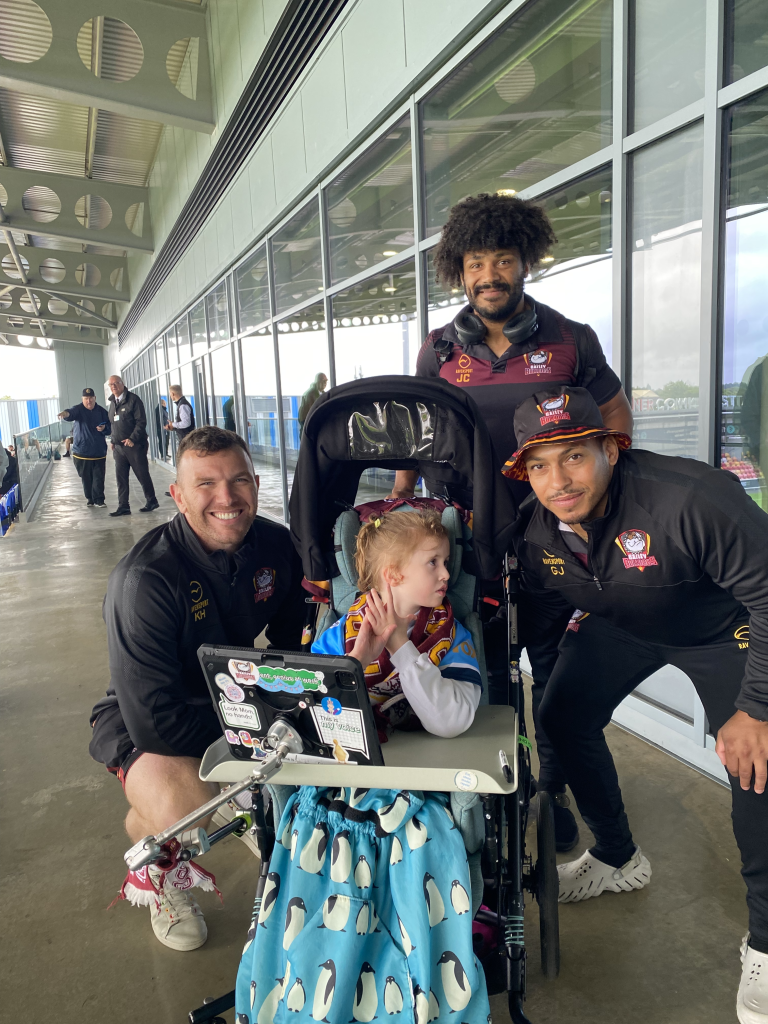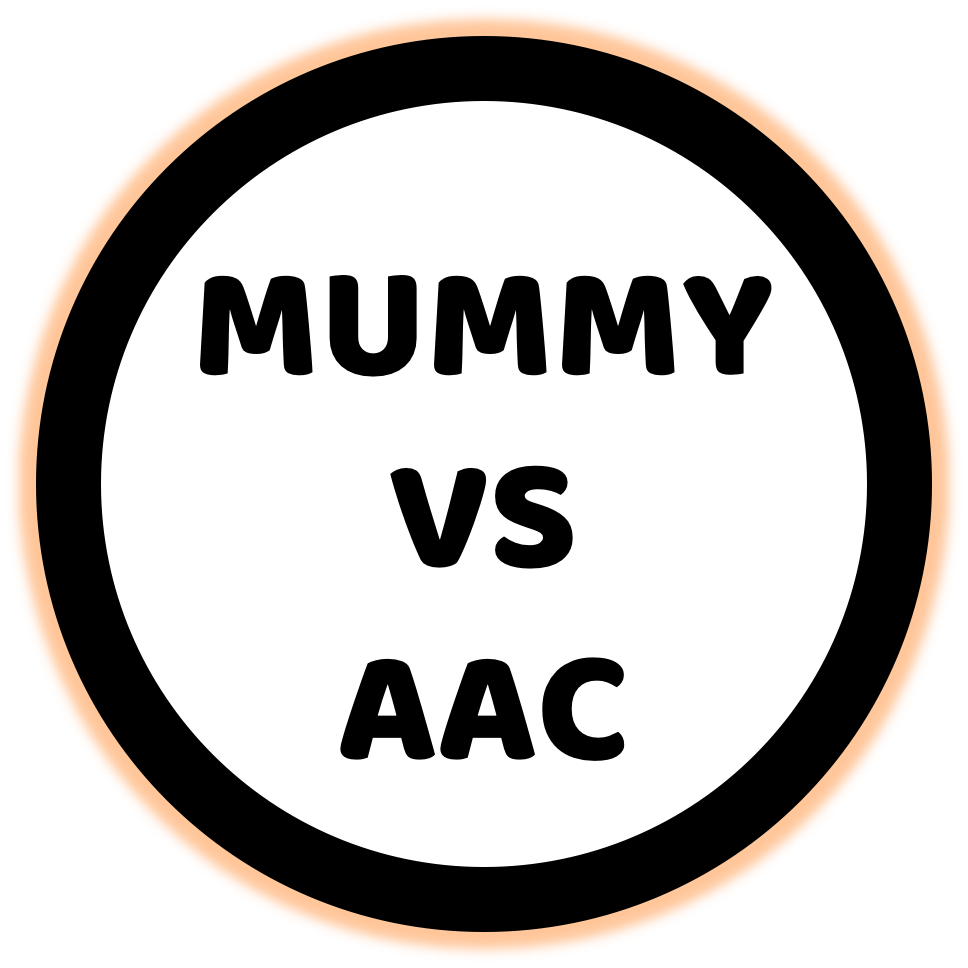It felt right to write this post about inclusion as separate from the previous one about physical access. I’ve got two reasons for that, inclusion for disabled people is about more than physical access and inclusion is about more than disability. I don’t think inclusion is just about what we do it’s about how we feel. I think we can all identify with the experience of feeling that you are somewhere that you’re wanted and where you belong. You FEEL included, you KNOW you’re wanted. For me this is inclusion and it goes way beyond policies and plans.
Sometimes inclusion is about having rights realised and it’s the result of activism. Rugby League was born of activism. I don’t know if it’s the inherent activism in being a parent carer but I find this aspect of the sport’s history just really cool. Let me tell you about it very briefly, for more I refer you to ‘From the Mountaintop’ (Roe, Swift, Pearson and Lingard, 2020) and this wikipedia page. Prior to 1895 there was just one Rugby looked after by the Rugby Football Union (RFU). Players were amateurs and payment for playing was not allowed. In short the RFU would not allow payments to players for time they missed out of their day to day work stating ‘if men couldn’t afford to play, then they shouldn’t play at all’. Of course this affected people’s ability to play as they would miss work. It meant that the game was kept exclusive for those who could afford to play. This divide was also drawn geographically with players in northern towns with lower wages and without the luxury to play without pay. This is how Rugby League (initially the Northern Union) was born in Huddersfield on the 29 August 1895 at the George Hotel in Huddersfield. The formation of RL in my opinion was about inclusion and about everyone’s right to play.
What does that look like in 2023? The game has changed, the town has changed and the world has changed. I’m a returner to RL fandom and have never played. I thought I’d have a look at what the RL have got going on in terms of inclusion. They have policies and plans aplenty this is the current action plan TackleIT. From this document it’s clear that the RL centrally have plans and actions looking at the majority of the ‘protected characteristics’ in the Equality Act (age, disability, gender reassignment, marriage and civil partnership, pregnancy and maternity, race, religion or belief, sex, and sexual orientation) that are pertinent to the playing of RL. Aside from the policy and plans they also have a range of adaptations to the game, a learning disability game, physical disability game, wheelchair game (more on those here).
In terms of disability and the Rugby League community I want to talk a bit about Rob Burrow and tell you about something really special he did. Rob Burrow had an extraordinary career in RL. He played for Leeds Rhinos. In 2019 he was diagnosed with Motor Neurone Disease. He is an AAC user who uses eye gaze and in December last year he read the CBeebies bedtime story. (If you’re reading outside the UK this is a very big deal!!) Absolutely amazing for Lucy to be able to see someone communicating using eye gaze. It’s so important for disabled kids to be able to see disabled adults and Rob and his family’s openness has had such a wide ranging impact. At one game earlier in the year while I’d nipped off to the loo a lady came down to Lucy and Drew in the stand and, looking at her communication aid, asked ‘is that like what Rob Burrows has got?’
So what does that look like at Batley? I don’t think I can write about inclusion at Batley without writing about Keegan Hirst. In 2015 while signed to Batley Keegan came out as gay, the first professional RL player in the UK to do so. If you follow Keegan on Instagram, in between what seem to be an extraordinary number of stories with the theme ‘Keegan in an Ice Bath’ he speaks about authenticity. Just this evening as a write this he’s posted this video (no ice baths or Bulldogs speedos on this one). I hope the impact of having one of very few out gay people in professional rugby (of any code!) playing at the club is more people feeling included and knowing that it’s a place that is for them.

One of the very obvious things that makes me think about inclusion and diversity at Batley is the stark contrast between the people in the stadium and the people living near it. Mount Pleasant has a busy Islamic community of people of South Asian origin. It was a pleasure at the Jo Cox memorial game earlier in the year to see a crowd which better represented the population of the town, the British Asian Rugby Association team played in a curtain raiser match. RL are clear in the TackleIT plan that they want the sport to represent greater diversity and have plans for working with local teams and communities.
How about disability at Batley then? Well I’ve written a few days ago about physical access so you can read that here. The club are in the middle of raising funds through the Batley Bulldogs Foundation to buy specialist wheelchairs and set up a team for the wheelchair game which will be a really great move for inclusion at the club. I’m keen to take Lucy to watch some wheelchair games and if we can do that while continuing to follow Batley then bonus!
So inclusion is not just about ramps and steps, nor is it just about policies and plans. Inclusion is about feeling seen and valued. It’s about fans saying hi and that ‘we want to be as inclusive as we can’. It comes from the feeling that people are willing to have you in their spaces. It comes from the attitudes you encounter. It’s ‘we don’t have a lift but we’ll find a way’. Right from our first game this season it was clear that we were in a place where the people wanted us to be welcome. Everyone was so helpful with parking and smoothing our way. In the stands people smiled and chatted to all of us. Were there a few stares? Of course there were, Lucy’s pretty interesting to look at for many reasons but we’re used to that. I really hope that everyone who decides to go to a rugby game feels the way we have about it.

No responses yet